Who is Ignatius
An early church father
What was the reason Augustine became Christian?
He was born between non believer and believer parent. While he was continuously studying about other religions, he heard the voice of an angel/God calling him to read a bible. He started reading the bible and realized that God exists. That was the reason why he became a believer.
What was the importance of Clement I’s first epistle?
The first letter of clement did not only have a great impact on the church in corthin but it also influenced the growth of the church and of the episcopal orders of the ministry. The epistle was also used to support the doctrine of apostolic succession (bishops having superpowers that were handed down from the apostles)
What parts of the Old Latin Bible did Jerome make edits?
He made revisions to the Psalms and the Gospels in the Vulgate.
What sources did Africanus use for the Chronographia
Africanus relied on many sources, using the Bible as his primary source for his calculations; Africanus also used many other sources such as Greek Mythology, Judaic History, Chaldean Chronologies, with Christianity in order to calculate the year of creation.
He baptized St. Augustine of Hippo.

Who was Ambrose?
How many epistles did Ignatius write, and to whom were these for? Name at least 2.
Ignatius wrote 7 epistles: Ephesians, Magnesians, Trallians, Romans, Philadelphians, Smyrnaeans, and Polycarp (bishop of Smyrna).
What were some beliefs that Augustine had towards Christianity?
A couple of his beliefs that are more well known include the concept of “Original Sin”. This means that humans are born sinful with the innate urge to defy God and do evil, because Adam and Eve chose to disobey God. This also segues into his beliefs regarding Free Will, which many were questioning at this time as they were wrestling with the thought of “if God is all-knowing, how can humans have free will?” to this he responded with an identification of 2 types of evil, moral evils (stealing, lying) and natural evil (tornadoes, tsunamis). Because moral evil is a choice, he believed that God is there to guide those to be righteous, not to control over their will.
What was Clement’s role in the church?
Traditionally he would be pope but he was always referred to as a “bishop” He was most likely given the title because of his missionary zeal.
What did Jerome do in order to take up his ascetic lifestyle?
In order to take up his ascetic lifestyle Jerome moved southwest of Antioch into the desert of Chalcis.
When was the creation according to Africanus?
He stated in the Chronographiai, a five volume treatise, that the creation happened in 5499 BC.
He ministered to the German tribes.

Who was Boniface?
what did Ignatius do before his death?(During the trip to Rome)
during stops, Ignatius met local church leaders.
What is Augustine’s “Confessions” (about)? Why is it so significant?
Short answer - “Confessions” is a memoir by Augustine, and is significant because it provides an insight into his life and inspired the works of many Christians throughout the Medieval ages.
Longer answer - “Confessions” is a sort-of-memoir and autobiographical work written around 400 AD by Augustine. It is a first-person account of his life and includes stories and reflections/descriptions of his upbringing, struggles with “self-seeking careerism and sexual immorality”, conversion, and other significant events that have played a major role in the development of his theology and philosophy. “Confessions” influenced many Christian writers throughout the “dark ages”, provides us with insight into Augustine’s life (from infancy to thirty-three years), and ultimately inspires Christians today through narratives of sin and redemption.
How do Clements' writings influence people today?
Clement’s letter gives scholars a glimpse into the first-century church ministry and the relationship between Rome and the surrounding churches. Scholars are able to see the sense of the perspectives, decisions, and behaviors that shaped the church. And they also get to see how their teachings were expressed in the life of the church.
During Jerome’s 3 years of being a secretary to Pope Damasus, what are some actions he performed/the things he did? (What did Jerome do as a secretary to Damascus I?[282~285])
In short, Jerome pursued Bible study and lived a more respectful lifestyle. Not only studying the Bible, he also taught the Psalms, and rewrote parts of the Gospels in the Latin Bible because the old translations were filled with errors. St. Jerome was also notorious for being offensive and castigative to other Roman clergy and monks. He mocked others’ views of ideas like charity and scripture. Jerome acted like he was smarter than everyone else, so he was often not looked highly upon.
Where did Julius Africanus considerably travel around?
Gunsho’s Godly investigation proves that he traveled around Asia, Egypt, Italy, and later living in Palestine.
He argued (an apology) against the persecution of Christians (just for the sake of being Christian) to Roman Emperor Antoninus Pius.
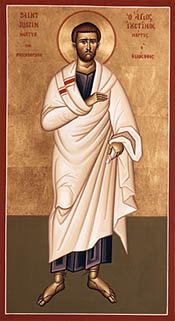
Who was Justin Martyr?
What did many of Ignatius’ epistles regard? What groups of people did he speak out against?
Warnings against false teachings, the New Testament being the fulfillment of the Old, importance of Christ’ Resurrection, peace, subordination to the clergy and bishop.
Judaizers (did not accept the authority of the New Testament and clung to Jewish practices such as observing the Sabbath)
Docetists (claimed that Christ only suffered and died in appearance).
 He wrote, The City of God, a philosophical treatise vindicating Christianity.
He wrote, The City of God, a philosophical treatise vindicating Christianity.
Augustine
Christian Apologist, missionary theologian to the Hellenistic (Greek cultural) world, and second known leader and teacher of the catechetical School of Alexandria.
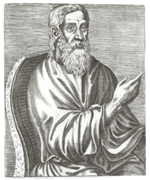
Clement of Alexandria
This is the man who called Emperor Constantine "most beloved by God," described the fourth-century church as being brought to "a state of uniform harmony," and called Jews "a people who had slain the prophets and the Lord himself."
Who was Eusebius?
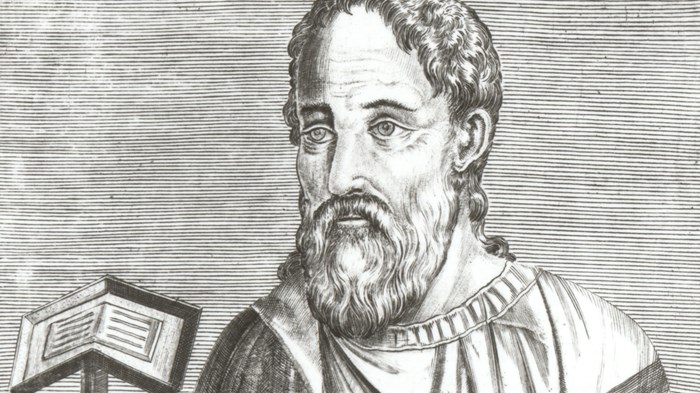
first Christian historian known to produce a universal chronology.
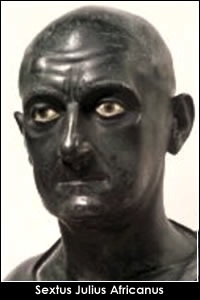
Sextus Julius Africanus
Roman Briton, kidnapped by pirates and sold as a slave, worked as a shepherd, then escaped returned to Britain and became a missionary to the Irish.
Who was Patrick?
This is a "heavenly" cake.

What is "Angelfood"
This American city is named for the early church father.

Saint Augustine, Florida
Fruit named for the monk who developed it, who was named after this early church father.

Clementine
What is Mr. Reed's favorite food?
Chicken

5th century evangelist to Hibernia.

Who is Saint Patrick?
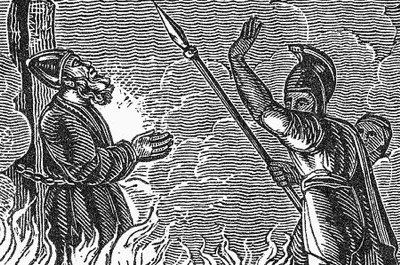 His name means "much fruit" in Latin.
His name means "much fruit" in Latin.
Polycarp